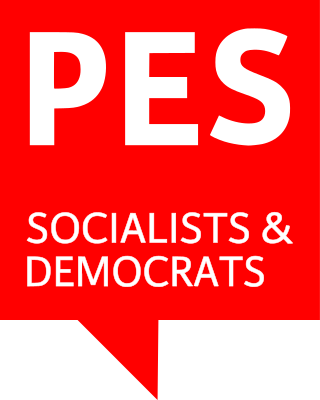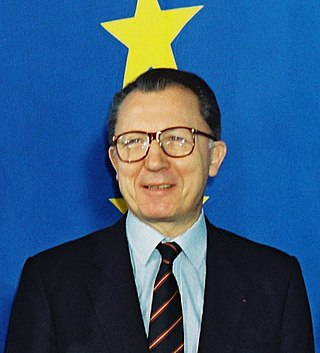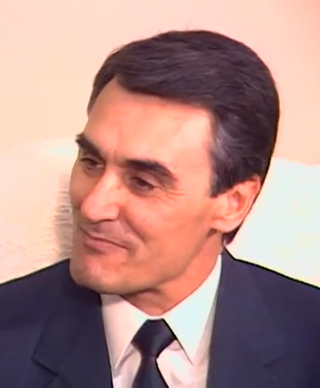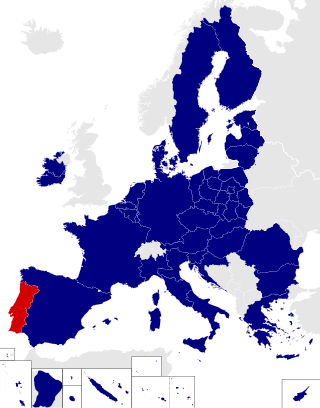Related Research Articles

The Party of European Socialists (PES) is a social democratic and progressive European political party.

Politics in Portugal operates as a unitary multi-party semi-presidential representative democratic republic, whereby the Prime Minister of Portugal is the head of government, and the President of Portugal is the non-executive head of state with several significant political powers they exercise often. Executive power is exercised by the Government, whose leader is the prime minister. Legislative power is primarily vested in the Assembly of the Republic, although the government is also able to legislate on certain matters. The Judiciary of Portugal is independent of the executive and the legislature. The President exerts a sort of "moderating power", not easily classified into any of the traditional three branches of government.

The Portuguese Communist Party is a communist, Marxist–Leninist political party in Portugal based upon democratic centralism. The party also considers itself patriotic and internationalist, and it is characterized as being between the left-wing and far-left on the political spectrum.

Mário Alberto Nobre Lopes Soares was a Portuguese politician, who served as prime minister of Portugal from 1976 to 1978 and from 1983 to 1985, and subsequently as the 17th president of Portugal from 1986 to 1996. He was the first secretary-general of the Socialist Party, from its foundation in 1973 to 1986. A major political figure in Portugal, he is considered the father of Portuguese democracy.

The Socialist Party is a social-democratic political party in Portugal. It was founded on 19 April 1973 in the German city of Bad Münstereifel by militants who were at the time with the Portuguese Socialist Action. The PS is a member of the Socialist International, Progressive Alliance and Party of European Socialists, and has nine members in the European Parliament within the Progressive Alliance of Socialists and Democrats group during the 9th European Parliament. It was the governing party of Portugal between November 2015 and April 2024, subsequently winning the 2019 and 2022 legislative elections.

The CDS – People's Party is a conservative and Christian democratic political party in Portugal. It is characterized as being between the centre-right and right-wing of the political spectrum. In voting ballots, the party's name appears only as the People's Party, with the abbreviation CDS–PP unchanged.

António Luís Santos da Costa is a Portuguese lawyer and politician who served as the 119th prime minister of Portugal from 2015 to 2024, presiding over the XXI (2015–2019), XXII (2019–2022) and XXIII Constitutional Governments (2022–2024).

Elections in Portugal are free, fair, and regularly held, in accordance with election law.

The Delors Commission was the administration of Jacques Delors, the eighth President of the European Commission. Delors presided over the European Commission for three terms. The first term lasted from 1985 to 1988, the second until 1992 and the final one until 1994, making Delors the longest serving president, and his Commission is also seen as the most successful at advancing European integration. It was the only Commission to serve three times, and Delors served five two-year terms. The third Commission was the first Commission of the European Union, the Maastricht Treaty having come into force in 1993.

The Unitary Democratic Coalition is an electoral and political coalition between the Portuguese Communist Party and the Ecologist Party "The Greens". The coalition also integrates the political movement Democratic Intervention.

The 1987 Portuguese legislative election took place on 19 July. The election renewed all 250 members of the Assembly of the Republic.

The 1989 European Parliament election in Portugal was the election of MEP representing Portugal constituency for the 1989-1994 term of the European Parliament. It was part of the wider 1989 European election. In Portugal the election was held on 18 June.
The 1987 European Parliament election in Portugal took place on 19 July 1987. It was the election of all 24 MEPs representing the Portugal constituency for the remainder of the 1984–1989 term of the European Parliament. Portugal had acceded to the European Community on 1 January 1986 and had been represented in the European Parliament by 24 appointed delegates until elections could be held. These elections took place on the same day of the legislative elections of 1987.
The Democratic Renewal Party was a political party in Portugal, founded in 1985 with the political support of the then independent President of the Republic, Ramalho Eanes, and lasting until 2000. At the time of its foundation, it was meant to "moralize Portuguese political life" and the party positioned itself in the political centre. Its first leader was Hermínio Martinho.

Between 1973 and 1993 the European Communities saw the first enlargement of the Communities. On 1 January 1973, Denmark, Ireland, and the United Kingdom became the first countries to join the Communities. The détente allowed initiation of the reunification of the continent through establishing the Conference on Security and Co-operation in Europe. Greece was the next to join EC on 1 January 1981, followed by Spain and Portugal joining on 1 January 1986, while Turkey has initiated the procedure in 1987. Upon the fall of the Iron Curtain, the CSCE was transformed in 1990 into Organization for Security and Co-operation in Europe, the Communities enlarged for a fourth time through the German reunification, while other former communist European countries stated their firm commitment to join, prompting formulation of the Copenhagen criteria. This period was, however, also the one which witnessed the first voluntary exit from the Communities, namely the one of Greenland in 1985. The integration progressed under the Delors Commission resulting in the creation of the European Union in 1993.

Portugal is a European Parliament constituency for elections in the European Union covering the member state of Portugal. It is currently represented by twenty-one Members of the European Parliament.

The 1987 European Parliament election in Spain was held on Wednesday, 10 June 1987, to elect the MEP delegation from the country for the 2nd European Parliament. All 60 seats allocated to Spain as per the 1985 Treaty of Accession were up for election. The election was held simultaneously with regional elections in thirteen autonomous communities and local elections all throughout Spain.

This is the results breakdown of the European Parliament election held in Spain on 10 June 1987. The following tables show detailed results in each of the country's 17 autonomous communities and in the autonomous cities of Ceuta and Melilla.
References
- ↑ Replaced by Rui Amaral on 13 February 1986.
- ↑ Replaced by José Pereira Lopez on 19 February 1987.